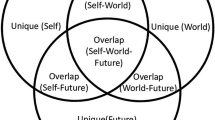Abstract
Subjects scoring above and below a sample median on the Beck Depression Inventory were randomly assigned to one of four experimental conditions in which they were exposed to either (1) an unsolvable task accompanied by unavoidable aversive noise, (2) an identical but solvable task whose solution prevented the noise, or conditions designed to control for the effects of (3) the aversiveness of the noise, or (4) possible baseline performance differences between subject groups. The adolescents in the depressed group who were exposed to the unsolvable task showed a significant performance deficit on a subsequent solvable task when compared to their counterparts in the other three conditions. Subjects in the nondepressed group showed no such deficit, suggesting that as level of depressive symptomatology increases, adolescents become more vulnerable to suffering a disruption of active coping (effort, persistence, problem solving) when confronted with uncontrollable events. Theoretical and treatment issues related to adolescent depression are discussed.
Similar content being viewed by others
References
Alloy, L. B., Peterson, C., Abramson, L. Y., and Seligman, M. E. P. (1984). Attributional style and the generality of learned helplessness.J. Personal. Social Psychol. 46: 681–687.
Bandura, A. (1989). Human agency in social cognitive theory.Am. Psychol. 44: 1175–1184.
Bandura, A. (1986).Social Foundations of Thought and Action: A Social Cognitive Theory, Prentice-Hall, Englewood Cliffs, NJ.
Beck, A. T. (1967).Depression: Clinical, Experimental and Theoretical Aspects. Harper & Row, New York.
Beck, A. T., Hollon, S. D., Young, J. E., Bedrosian, R. C., and Budenz, D. (1985). Treatment of depression with cognitive therapy and amitriptyline.Arch. Gen. Psychiat. 42: 142–148.
Bowers, K. S. (1973). Situationism in psychology: An analysis and a critique.Psychol. Rev. 80: 307–333.
Dweck, C. S., and Licht, B. (1980). Learned helplessness and intellectual achievement. In Garber, J., and Seligman, M. E. P. (eds.),Human Helplessness. Academic Press, Orlando, FL.
Firth-Cozens, J. (1988). Attributional change during psychotherapy.Br. J. Clin. Psych. 27: 47–54.
Greer, J. G., and Wethered, C. E. (1987). Learned helplessness and the elementary student: Implications for counselors.Element. School Guid. Counsel. 22: 157–164.
Kryter, K. D., Ward, D. D., Miller, J. D., and Eldredge, D. H. (1966). Hazardous exposure to intermittent and steady-state noise.J. Acoustic Soc. Am. 39: 451–464.
Levine, M. (1971). Hypothesis theory and non-learning despite ideal S-R reinforcement contingencies.Psychol. Rev. 78: 130–134.
Lewinsohn, P. M., Lobitz, W. C., and Wilson, S. (1973). “Sensitivity” of depressed individuals to aversive stimuli.J. Abnorm. Psychol. 81: 2569–263.
McConville, B. J., and Bruce, R. T. (1985). Depressive illness in children and adolescents: A review of current concepts.Can. J. Psychiat. 30: 119–129.
Metalsky, G. I., Abramson, L. Y., Seligman, M. E. P., Semmel, A., and Peterson, C. (1982). Attributional styles and life events in the classroom: Vulnerability and invulnerability to depressive mood reactions.J. Personal. Social Psychol. 43: 612–617.
Mikulincer, M. (1986). Motivational involvement and learned helplessness: The behavioral effects of the importance of uncontrollable events.J. Personal. Social Psychol. 4: 402–422.
Mischel, W. (1973). Toward a cognitive social learning reconceptualization of personality.Psychol. Rev. 80: 252–283.
Murphy, G. E., Simons, A. D., Wetzel, R. D., and Lustman, P. J. (1984). Cognitive therapy and pharmacotherapy, singly and together in the treatment of depression.Arch. Gen. Psychiat. 41: 33–41.
Peterson, C. and Seligman, M. E. D. (1984). Causal explanations as a risk factor for depression: Theory and evidence.Psychol. Rev. 91: 347–374.
Peterson, C., and Seligman, M. E. P. (1985). The learned helplessness model of depression: Current status of theory and research. In Beckham, E. E., and Leber, W. R.Handbook of Depression Treatment: Assessment and Research. Dorsey Press.
Peterson, C., Semmel, A., vonBaeyer, C., Abramson, L. Y., Metalsky, G. I., and Seligman, M. E. P. (1982). The attributional style questionnaire.Cog. Ther. Res. 6: 287–299.
Rosenthal, H. (1986). The learned helplessness syndrome: Specific strategies for crisis intervention with the suicidal sufferer,Emot. First Aid J. Crisis Intervent. 3: 5–8.
Sackheim, H. A. (1983). Self-deception, depression and self-esteem. In Masling, J. (ed.),Empirical Studies of Psychoanalytic Theory. Lawrence Erlbaum.
Seligman, M. E. P., Peterson, C., Kaslow, N. J., Tanenbaum, R. L., Alloy, L. B., and Abramson, L. Y. (1984). Explanatory style and depressive symptoms among children.J. Abnorm. Psychol. 93: 235–238.
Zung, W. W. K. (1965). A self-rating depression scale.Arch. Gen. Psychiat. 12: 63–70.
Author information
Authors and Affiliations
Additional information
Received Ph. D. in clinical psychology, from Syracuse University. Research interests: clinical training, treatment program development, and organizational dysfunction/intervention.
Rights and permissions
About this article
Cite this article
Brightman, B.K. Adolescent depression and the susceptibility to helplessness. J Youth Adolescence 19, 441–449 (1990). https://doi.org/10.1007/BF01537473
Received:
Accepted:
Issue Date:
DOI: https://doi.org/10.1007/BF01537473




